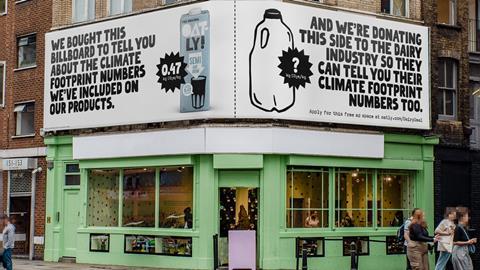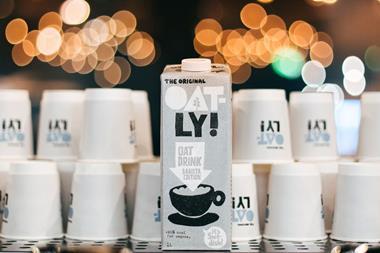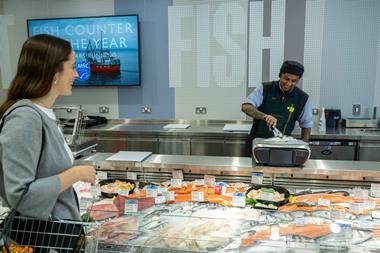Oatly announced a landmark move for the brand last week. It would, finally, move over to 100% British oats for the production of eight lines in its Barista range for the UK market.
But while long awaited, with Oatly itself describing the move as “years in the making”, the announcement was not quite all it seemed.
In all its breathless excitement, the accompanying press release left off one piece of crucial information: that although the oats were being sourced in the UK, they were still being processed into oat milk in the Netherlands.
This revelation, only volunteered on the back of The Grocer’s questioning, means the product is still subjected to significant food miles, being shipped back and forth across the channel so that Oatly can stamp a 100% British oats logo and a union flag on its packaging.
Home-grown oats
Of course, any support for British agriculture is laudable, with the brand estimating it will have tripled its investment in British-grown oats by 2026, while also doubling the volume of British oats in supplied products across EMEA markets.
For the biggest oat milk brand in the UK to move to home-grown oats, bringing more of the dairy alternative space (long considered the enemy of British farming) into that ecosystem, should be seen as a big win for the struggling agricultral sector.
But the move also raises the nagging thought that Oatly has undermined its own argument of supporting UK food production by not matching the commitment with an investment in UK manufacturing or infrastructure.
It is also conveniently timed. Alpro, Oatly’s main competitor, announced the move to 100% British oats in March, a moment that had been three years in the making and meant a significant investment in its Kettering facility as it brought all its oats and production to within an 80-mile radius.
But unlike Alpro, Oatly does not have manufacturing capabilities in the UK – having quietly shelved much-vaunted plans for a Peterborough production facility in May last year.
The abandoned site promised to create 200 jobs but was scrapped after Oatly identified “new ways to serve the UK market [by] utilising existing facilities across Europe”.
Oatly claims fall short
Not to mention the significant environmental implications of driving a product back and forth across the channel before it reaches UK consumer’s fridges.
Oatly maintains that the move will still cut emissions for the brand by 13%, compared to a 2024 baseline, thanks to the more environmentally-friendly way the oats are grown in Britain. However, with so much travel, it begs the question: how bad were the oats they were sourcing before?
And even if it is better for the planet overall, this move – against the backdrop of that rowback on manufacturing investment last year – still feels a tad disingenuous, if not outright misleading.
Consumers are likely to assume that ‘100% British oats’ means the product is now 100% British, as is the case with Alpro and Oatly’s long-time bête noire Glebe Farm (which the Swedish plant-based giant unsuccesfully sued in 2021).
And Oatly – which has form for its often controversial marketing and PR strategy (see its Feck Oatly push last year, and numerous claims of being better than dairy for the planet, while also attracting investment from the likes of US asset manager Blackstone) – arguably knows this.
It is admirable to support British agriculture and farming, but it would be nice if the British manufacturing sector could be paid the same favour, especially as Oatly had previously promised to do so.
This may be a step in the right direction but it feels incomplete. For a brand so often surrounded by controversy, such moves like this should be done with transparency and substance, rather than feeling like a rushed PR job to keep up with its main rival.




















No comments yet